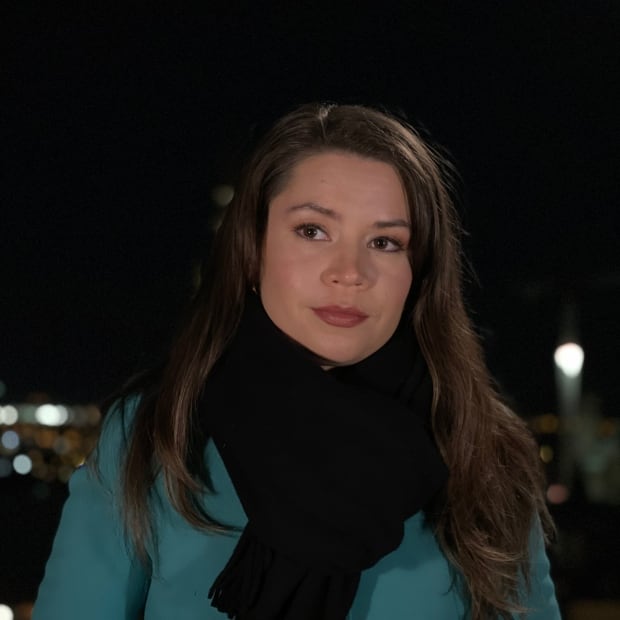The Assembly of First Nations’ executive committee has passed a resolution to recommend chiefs-in-assembly remove RoseAnne Archibald as national chief at their next meeting, CBC News has learned.
Resolution comes after investigation into RoseAnne Archibald’s conduct


The Assembly of First Nations’ executive committee passed a resolution on Friday to recommend chiefs-in-assembly remove RoseAnne Archibald as national chief at their next meeting, CBC News has learned.
The resolution states a human resources investigation into Archibald’s conduct found she breached the national organization’s harassment and whistleblower policy, along with its code of conduct and ethics, according to multiple sources who were at the meeting and a copy of the resolution shared with CBC News.
CBC has not independently verified the contents of the reports from the investigation.
“The AFN executive committee is out of line and their motion is completely unnecessary as 75% of First Nations-in-Assembly overwhelmingly endorsed my leadership and approach to create more transparency and accountability at the AFN,” Archibald responded to the executive committee’s resolution in a statement from her press secretary, Andrew St. Germain, to CBC News.
“Resolution 3/2022 is very clear that it’s the First Nations-in-Assembly who are to receive and consider the report, not the AFN executive committee, who are yet again overstepping their authority. Once the report is shared publicly, everyone will know the truth.”
My statement on final HR investigation report: pic.twitter.com/W1kemZO4t9
Her latest statement comes after she released her own interpretation of the probe’s results in an April 21 statement — saying she had been “vindicated.”
Ten regional chiefs unanimously passed the resolution on Friday, according to the document. It was moved by New Brunswick AFN Regional Chief Joanna Bernard and seconded by Ontario Regional Chief Glen Hare.
Archibald was not at the executive committee meeting where the resolution recommending her expulsion was passed. Sources tell CBC News that would have been a conflict of interest.
“The executive committee hereby denounces the national chief for her breaches,” the resolution says.
5 reports,1 for each complainant
The external probe was launched last spring after four of Archibald’s senior staff filed bullying and harassment complaints against her, followed by a fifth complaint from the AFN’s then-CEO.
Ottawa-based employment lawyer Raquel Chisholm was hired by the AFN to oversee the investigation.
The investigators made five reports, one for each complainant, according to the resolution.

The resolution states the reports cannot be disclosed to the chiefs-in-assembly due to confidentiality requirements of the AFN’s harassment policy and the Canada Labour Code.
But it also says Chisholm will prepare a summary of the five reports for the chiefs-in-assembly, including the context of the executive committee’s recommendation.
Chiefs-in-assembly, ultimately, have the final say on Archibald’s future. Their next meeting is scheduled for July in Halifax.
The executive committee says Chisholm found Archibald harassed two complainants contrary to the AFN’s workplace violence, discrimination and harassment policy, according to the resolution.
The resolution also says Archibald breached the confidentiality requirements of the harassment and whistleblower policy, and code of conduct and ethics, in all five reports. It says investigators found that Archibald retaliated against all five people for bringing forward their complaints.
The executive committee also said Archibald’s actions have put the AFN at risk of “significant liability for constructive and wrongful dismissive damages, [as] well as other statutory and common law damages through her actions.”
History of tension
This is not the first time the executive committee has tried to sanction Archibald related to the bullying and harassment allegations from AFN staff.
Last June, regional chiefs suspended Archibald after the initial complaints were made against her.
A few weeks later, in July, First Nations leaders voted against continuing Archibald’s suspension at the Vancouver assembly.
Archibald, who was elected as the first female national chief in July 2021, has always maintained she didn’t bully or harass anyone. She called the investigation a “smear campaign” and an attempt to undermine her leadership when it was announced.
Archibald also expressed concerns about the investigation, calling it “confrontational” and “colonial.”
In a memo sent to First Nations leaders earlier this year, she also said she was not given access to what she needs to defend herself.
ABOUT THE AUTHOR

Olivia Stefanovich is a senior reporter for CBC’s Parliamentary Bureau based in Ottawa. She previously worked in Toronto, Saskatchewan and northern Ontario. Connect with her on Twitter at @CBCOlivia. Story tips welcome: olivia.stefanovich@cbc.ca.

